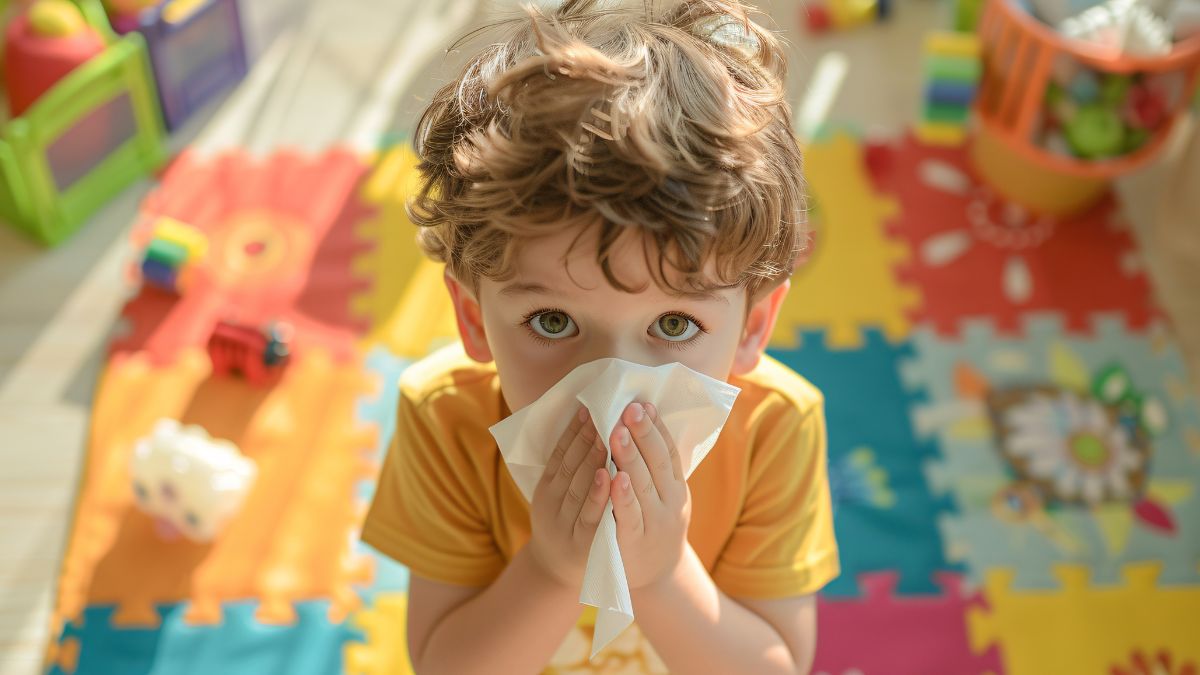Autism and Sensory Sensitivity: Smell and Behavior
See how smell and autism are connected. Understand why scent sensitivities affect behavior, eating, and routines, and explore strategies that bring relief.

Autism and sensory sensitivity to smell influence behavior by altering how odors are processed in the brain. Children may overreact, underreact, or misinterpret scents, leading to avoidance, anxiety, food refusal, or meltdowns. Smell-based sensitivities impact daily routines, eating, and social participation but can be managed with support.
Everyday routines can quickly fall apart when a child reacts strongly to smells most people hardly notice. Parents often wonder whether these reactions are just quirks or if smell and autism are closely connected.
Up next, you’ll see how scent sensitivity affects daily life, why these reactions happen, and what steps can make environments more manageable for children and their families.
Can Smell Be A Sensory Issue?
Yes. Smell can be a sensory issue in autism because diagnostic criteria include hyperreactivity, hyporeactivity, and unusual interest in sensory input. This covers strong odor reactions or frequent smelling of objects. Research consistently shows high rates of sensory differences in autistic individuals.
Children may respond in three ways:
- Hyper-responsiveness: Strong reactions to even faint odors.
- Hypo-responsiveness: Little or no reaction to smells, including those linked to danger.
- Distorted responses: Neutral odors may smell unpleasant or “wrong.”
Research shows that these sensory differences are not random. Studies using brain imaging reveal that children with autism often have altered responses in regions linked to odor detection and emotional regulation.
How Does Autism Affect Smell?
Autism affects smell by altering sensory processing. Some individuals experience heightened or reduced sensitivity, some struggle to identify odors, and many show different sniff responses to pleasant or unpleasant scents. These differences vary by person and age, influencing eating habits, hygiene, and social comfort.
For example:
- The smell of familiar soap may provide comfort and predictability.
- The odor of cafeteria food may cause panic and refusal to enter the lunchroom.
- A strong perfume at school could trigger crying, withdrawal, or meltdown.
In one study, children with autism showed reduced sniff responses to unpleasant odors compared to peers. This difference suggests that the way smell is processed in autism directly influences behavior in real time.
What Is Olfactory In Autism?
Olfactory in autism refers to smell processing, including how odors are detected, identified, and rated. Research examines thresholds, discrimination, and sniff reflexes, which often differ from nonautistic patterns. These findings are not diagnostic alone but provide valuable insight into sensory functioning in autism.
Common Behaviors Linked to Smell Sensitivity
Families often observe behaviors tied to olfactory triggers:
- Avoidance: Refusing to enter rooms with cleaning products, perfumes, or cooking smells.
- Anxiety or distress: Sudden crying, covering the nose, or agitation when odors are present.
- Food refusal: Limited diets because the smell of certain foods is too intense.
- Difficulty focusing: Classroom distractions due to lingering scents like markers or lunch.
- Social withdrawal: Avoiding peers who use scented products like deodorant or lotion.
These behaviors may appear unpredictable, but they are consistent with how the child’s sensory system interprets odors.
Real-Life Challenges Parents Face
Parents often describe the following struggles:
- Morning routines are disrupted because toothpaste, shampoo, or laundry detergent is overwhelming.
- Grocery shopping becomes stressful when the smell of seafood or cleaning aisles triggers distress.
- Family meals lead to conflict when food odors cause refusal or gagging.
- Public spaces like malls, buses, or schools are becoming hard to manage due to unpredictable odor exposure.
These difficulties can affect not only the child but also family schedules, mealtimes, and participation in daily activities.
How Smell Sensitivity Affects Eating
One of the most common impacts of smell and autism is on eating habits. Smells from cooked vegetables, meats, or sauces may trigger strong aversions. Even before tasting food, a child may refuse it due to its odor. This can lead to restricted diets, nutritional concerns, and stress at mealtimes.
Parents often confuse this with picky eating, but the root is sensory processing. Unlike typical picky eating, which may improve with age, smell-based aversions can persist unless addressed with structured support.
Strategies for Managing Smell Sensitivity
Families can try simple but effective adjustments:
- Switch to unscented products: Use fragrance-free soaps, detergents, and cleaners.
- Give warnings: Tell the child before entering environments with strong odors.
- Allow safe escapes: Provide permission to step outside or use a neutral-smelling mask.
- Introduce scents slowly: Pair mild scents with positive activities in short bursts.
- Provide choice: Let the child help select acceptable toiletries or meal ingredients.
These changes reduce stress and help children feel more in control.

Therapeutic Support for Smell Sensitivity
While environmental changes help, many children benefit from structured therapy.
- Occupational therapy may use sensory integration approaches, gradually building tolerance to scents.
- ABA therapy can use positive reinforcement when a child responds adaptively to odors.
- Speech therapy may help children express discomfort before it escalates into meltdowns.
Recent findings highlight that when therapy addresses sensory challenges alongside communication, children generalize skills better across home, school, and community settings.
Teaching Coping Skills
Children can learn to manage smell sensitivity through coping strategies such as:
- Carrying a favorite scented cloth to mask overwhelming odors.
- Practicing calming breathing techniques when exposed to strong smells.
- Using visual supports to communicate discomfort (e.g., “too smelly” cards).
- Building tolerance by starting with mild, pleasant scents before moving to stronger ones.
Over time, these skills reduce distress and increase participation in daily life.
When Professional Help Is Needed
Parents should consider professional support when:
- Odor sensitivity limits school attendance or classroom participation.
- Mealtime struggles affect nutrition and health.
- Public outings frequently trigger meltdowns.
- Home strategies are not enough to reduce distress.
Professional evaluation ensures a tailored plan for both sensory needs and behavioral support.
Building Positive Experiences Around Smell
Not all odor interactions are negative. Some children find comfort in pleasant scents. Families can explore safe ways to make smell a positive tool. For example, using calming lavender before bedtime or allowing the child to choose preferred scents for personal items. Creating positive associations helps reduce fear and increase flexibility.
Guiding Children Toward Comfort and Independence with ABA Support
Autism and sensory sensitivity to smell often create daily struggles, from mealtimes to classroom focus. When strong odors spark avoidance or meltdowns, families may feel stuck. But with practical adjustments, therapy, and structured strategies, children can learn to cope and even thrive despite these challenges.
Families looking for support can benefit from ABA therapy services in Maryland, Colorado, Utah, North Carolina, New Mexico, and Nebraska.
At Attentive Autism Care, therapy programs focus on reducing sensory distress, strengthening coping strategies, and improving daily routines. Families who engage in ABA often see their child become more comfortable in environments that once caused stress.
Every child deserves tools to feel safe, calm, and capable in their world. Reach out today to learn how ABA therapy can help your child build independence and stability in everyday life.




































































































